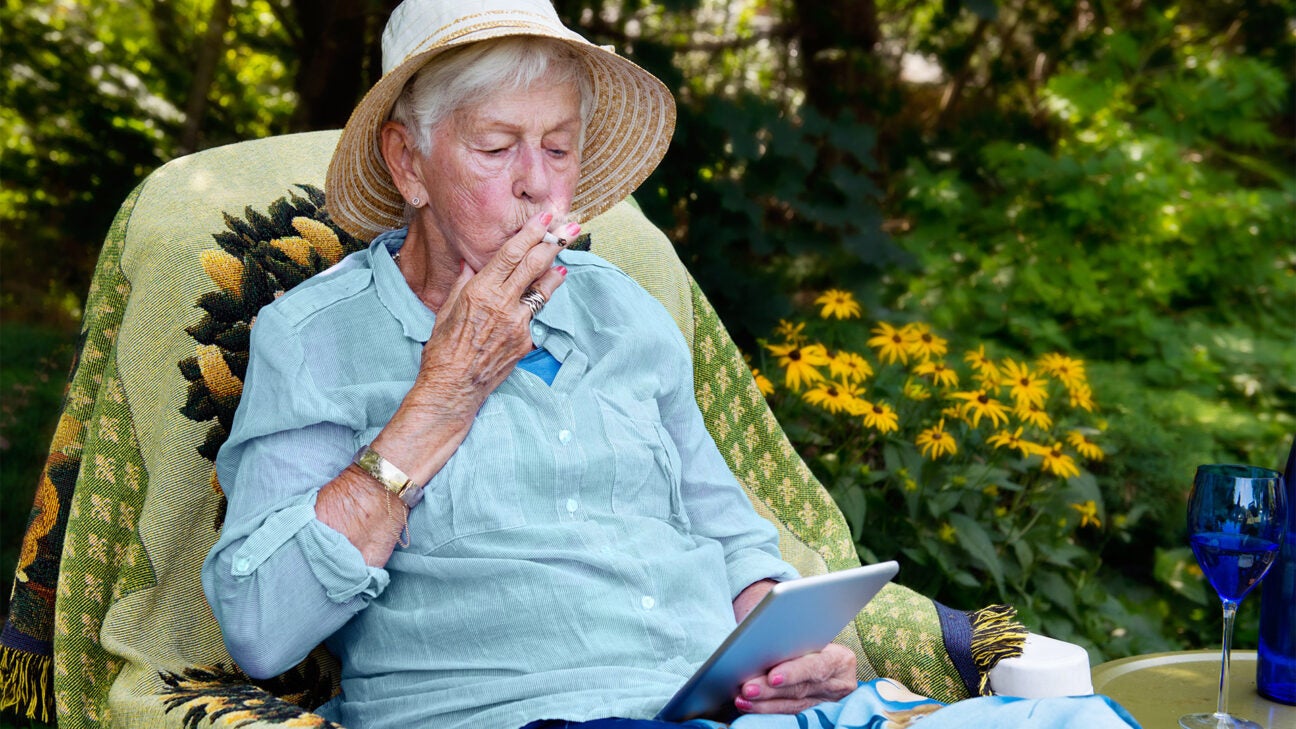
- Researchers say that more than 40 percent of people being treated for breast cancer use cannabis to help with side effects from treatment.
- Nearly half of those who use cannabis haven’t told their doctor.
- Experts say people using cannabis need to be aware of its limitations, as well as the possibility of it interacting with other medications.
Surgery, radiation, and chemotherapy are the most common treatments for breast cancer, but there’s another drug that’s being used by almost half of people with the disease.
That would be cannabis.
More often than not, however, cancer doctors are unaware of their patients’ cannabis use.
A new study in the journal Cancer found that 42 percent of the 612 breast cancer patients studied said they used cannabis to relieve symptoms associated with their disease or the side effects of treatment, including pain, fatigue, nausea and vomiting, insomnia, stress, and anxiety.
Three-quarters of the people who used cannabis said it was helpful in alleviating their symptoms.
Research has shown that cannabis can be effective for many of these symptoms, notably pain and nausea.
However, nearly half of the study participants who used cannabis (49 percent) also believed that cannabis could be used to treat cancer itself — something that’s not supported by research.
The quiet use of cannabis
The study found that 79 percent of cannabis users had used the drug during their treatment.
Cannabis was consumed in a variety of ways — hemp and marijuana, THC and/or CBD — and at unknown frequency and dosage.
However, only 39 percent of people who used cannabis discussed their use of it with their doctors.
Those who sought information on medical cannabis were far more likely to search online than to talk with a physician, although either way, most were unsatisfied with the information they received.
“Our study highlights an important opportunity for providers to initiate informed conversations about medical cannabis with their patients, as the evidence shows that many are using medical cannabis without our knowledge or guidance,” said Dr. Marisa Weiss, lead study author and a founder and chief medical officer of Breastcancer.org, as well as director of breast radiation oncology and breast health outreach at Lankenau Medical Center in Wynnewood, Pennsylvania.
Weiss said that not knowing whether or not cancer patients are using cannabis “is a major blind spot in our ability to provide optimal care.”
She told Healthline that doctors need information on cannabis use to ensure patients that symptoms and side effects “are being adequately managed while minimizing the risk of potential adverse effects, treatment interactions, or non-adherence to standard treatments due to misinformation about the use of medical cannabis to treat cancer.”
Dr. Jordan Tishler, president of the Association of Cannabinoid Specialists and an internist at inhaleMD, told Healthline that the use of cannabis among cancer patients has risen sharply in recent years.
“On one level, 42 percent seems surprising. On the other hand, perhaps it would be better if it was closer to 100 percent,” said Tishler.
He noted that cannabis should fall on the continuum of pain treatments somewhere between analgesics and opiates.
“For treatment of cancer-related symptoms, cannabis is really a no-brainer,” he said.
However, Tishler said that while there are some studies showing that cannabinoids — one of the main therapeutic ingredients in cannabis — can kill cancer in cell cultures, the drug is “nowhere near ready for human prime time” as a cancer treatment.
Drug interactions can be dangerous
Tishler said people being treated for breast cancer need to be aware that cannabis can interact with other medications.
“A lot of people gravitate toward CBD because it’s legal and doesn’t cause intoxication, but CBD can interact with many conventional medications and make them more or less effective, [including chemotherapy],” said Tishler.
In addition, “there’s some evidence that cannabis can make immunotherapy (another form of cancer treatment) less effective.”
“People say that cannabis is medicine, but they don’t want to treat it as medicine,” said Tishler. “Patients should be disclosing everything to their physicians. Why go to the doctor and expect them to help you if you don’t give them the information they need?”
Stigma against medical cannabis use has declined in recent years, including among physicians, Tishler noted, which should encourage people being treated for breast cancer to discuss their cannabis use, frequency, and dose.
Doctors, in turn, can provide valuable information to patients about the benefits and risks of cannabis use.
The study found that most cannabis users believed the drug to be safe and knew little about potential risks or the lack of testing of cannabis products.
“No medicine is safe, and cannabis isn’t any different,” Tishler said. “On a clinical level, it can be used properly and for great benefit, or improperly and have great side effects and risk.”
* This article was originally published here
No comments:
Post a Comment